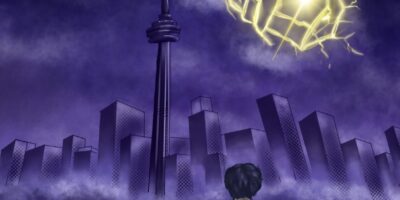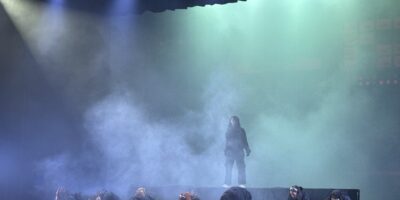On March 16 and 17, the first Women in Science and Engineering (WISE) National Conference was held in Toronto. The event was a year in the making by U of T’s long-established WISE chapter. There were over 100 delegates from engineering, science, and commerce backgrounds, both graduates and undergraduates, and a good showing of males too. Instead of focusing on gender issues, the conference aimed to prepare anyone with an interest in science, engineering, business, and technology for a successful career as a leader and an innovator. There were almost 10 delegates from Waterloo, many from engineering. Dean Sullivan generously provided a subsidy for UW attendees, and the caliber of keynote speakers and networking opportunities certainly made it worthwhile.
The event was opened by U of T’s dean of engineering Yu-Ling Cheng, who said that the attention at this conference made her feel like a “rock star”. She spoke to the need for greater diversity in the STEM (Science, Technology, Engineering, Math) disciplines, which extends beyond gender to culture, upbringing, and more. The opening keynote on innovation and leadership was delivered by Isle Treurnicht, the CEO of the MaRS Discovery District in Toronto. MaRS is a hub for healthcare research and technology and houses many startups. Ilse shared some surprising facts: the average age someone starts a business in the US is 39, and that Ontario funds many medical device companies, but those devices never end up in Ontario markets. She pointed to social innovation, long-term planning, and radical new thinkers with leadership skills as the key advantages that would allow Canada to compete against other countries with vastly larger populations and markets. She answered a lot of questions from Waterloo students regarding entrepreneurship and how (and where) to thrive as a young person in the business-tech world.
The afternoon keynotes were delivered by Catherine Lacavera, Director of Litigation at Google, and Brice Scheschuk, Co-founder, Director, and CFO of Globalive Communications/WIND Mobile. Catherine spoke about her unconventional-yet-intentional career path from computer engineering to IT law, and then described some of the major cases of copyright litigation between big companies like Google, YouTube, Apple, Microsoft, and Oracle. She encouraged delegates to follow their gut, study what they love, and seek advice when faced with tough career decisions. Brice has a background in commerce and spoke about the venture capitalist side of tech entrepreneurship. He shared what a company needs to attract investors and gave examples of smart business practice, such as when to pivot and how to adapt to rapid technology changes.
Day 1 kept on giving with a choice of workshop sessions on women and leadership, productive work environments (given by UW Eng grad Amar Varma, Co-founder of Xtreme Labs), oral presentation, life as a consultant, and work-life balance. The final keynote of the day was given by Ted Maulucci, CIO of Tridel Group, who was then followed by a panel discussion on the future of energy. The evening ended with a networking session, but many delegates were busy preparing for the case competition the following morning.
After a long night, multi-disciplinary teams of four competed in a tech case competition about delivering aid during an environmental crisis in the Honduras. It was great to see what diverse teams came up with and how to propose a solution as a mock consulting firm. For instance, my team had expertise on nanotechnology and electrical engineering, management science, and computer science (although we didn’t win…). Day 2 also featured 3 more keynote speakers. Akela Peoples, President and CEO of The Learning Partnership, and Marci Segal, creativity expert delivered energizing speeches about leadership and innovation. Laura Fromusa, former CEO of Hydro One, spoke more frankly about the need for more women on the technical side of the energy sector. There were also expert panels on personalized healthcare and the digital healthcare age. Finally, Nadine Miller of the Ontario Society of Professional Engineers closed the conference encouraging all aspiring engineers to do as the conference theme suggests and imagine, innovate, and inspire (and get your P.Eng).
For a first-ever national conference, U of T’s WISE team certainly packed it full of great topics emerging in the STEM disciplines. The presence of companies like Deloitte, Cisco, Kinross, and MDA gave it a very professional vibe, not to mention the high caliber of delegates. There was actually too much on the schedule for me to participate in, but I benefitted from everything I attended and consider my money well-spent in going. Keep your ears peeled for a WISE chapter coming to Waterloo, and if there is another WISE National Conference next year, I highly recommend going!




Leave a Reply